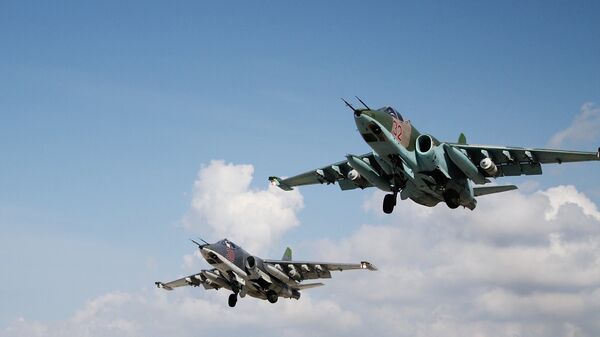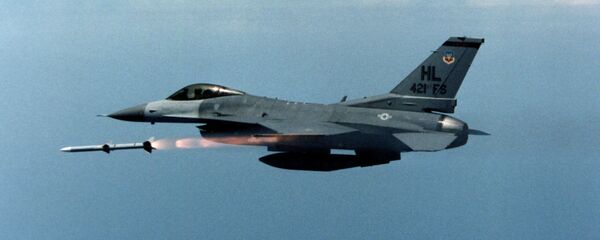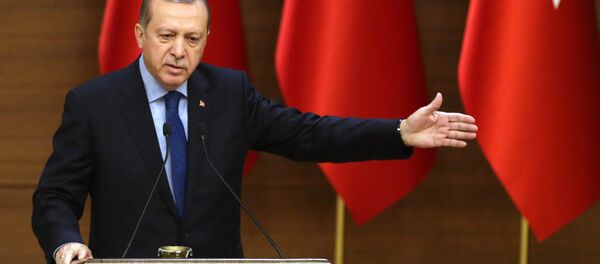This week Turkey and Russia carried out their first joint military operation against Daesh (ISIS/ISIL) in northern Syria, the Russian Defense Ministry reported Wednesday, highlighting that the mission was agreed upon with the government of the Syrian Arab Republic.
On January 12 representatives of the Russian Aerospace Forces and the Turkish Air Force signed a Memorandum on flight security and the prevention of air incidents, paving the way for an unprecedented military cooperation between Russia and the NATO member-state.
"Today, as a result of successful coordination, Russian aircraft carried out an air operation against designated Daesh targets in the south of al-Bab," Lt. Gen. Sergei Rudskoy, the chief of the Russian General Staff Main Operational Directorate, told a news briefing Wednesday.
Don't forget to turn on English subtitles.
He specified that nine strike aircraft and eight Turkish Air Force jets carried out the mission.
Assessing the results of the strikes, Lt. Gen. Sergei Rudskoy underscored that the joint military operation has proven effective.
Al-Bab is one of Daesh's last remaining strongholds near the Turkish border.
Speaking to Radio Sputnik, Behlul Ozkan, a political analyst and Assistant Professor of International Relations at Marmara University in Istanbul, emphasized the strategic importance of Russo-Turkish military cooperation.
Besides tackling the threat posed by Daesh, Ankara is also seeking to prevent the Kurdish Democratic Union Party (PYD) from consolidating the two regions it controls in northern Syria, Ozkan explained, referring to the Euphrates Shield Operation launched by Turkey on August 24.
The Turkish leadership regards the PYD and its paramilitary wing, the People's Protection Units (YPG), as affiliates of the Kurdistan Workers' Party (PKK), which Ankara has designated as a terrorist organization.
In the eyes of Ankara, the liberation of al-Bab would allow Turkey to kill two birds with one stone: to expel Daesh from its foothold and to prevent the PYD's expansion.
According to Ozkan, Ankara needs "to prevent the PYD from uniting two Kurdish cantons, namely Afrin, in north-western part of Syria and Kobane, which is in the north-eastern part" of the country.
"If the PYD unites these two Kurdish cantons, that would isolate Turkey from the Middle East," he argued, "Approximately seven hundred kilometers of the Turkish-Syrian border would be controlled by the PYD and that would threaten Turkey's security."
At the same time, the Turkish academic bemoaned that fact that Turkey doesn't enjoy the same level of support the Pentagon provides to the PYD and the YPG on the ground.
"In the last couple of weeks, Turkey has been fighting against ISIS [Daesh] in al-Bab… The coalition, especially the US, is supporting the PYD's advance towards Raqqa. According to the Turkish sources, American warplanes have been supporting the PYD. However, Turkey cannot get the same level of support from the US. That creates a kind of frustration in Ankara," Ozkan emphasized.
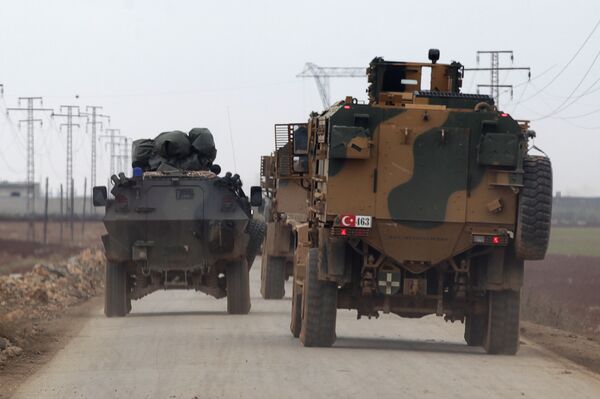
The rift between Turkey and the US has deepened over Washington's unwillingness to designate Kurdish military groups fighting Daesh in Syria as terrorists.
"At some point, they have to be a part of this process; [this] is our consideration," Toner said.
Furthermore, the Turkish military complained in late December that they were getting no help from the US-led coalition during their al-Bab offensive.
For his part, Turkish President Recep Erdogan accused the coalition of not fulfilling its promise to help Turkey retake al-Bab.
"The coalition forces are unfortunately not keeping their promises," Erdogan said, as quoted by Hurriyet Daily News. "Whether they do or they don't, we will continue along this path in a determined way. There is no going back on the path we have set out on," he added.
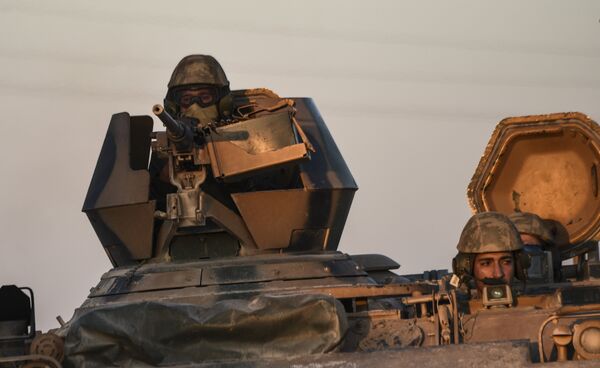
It seems that Washington's hesitance to provide Turkey with military assistance in al-Bab has pushed Ankara into Russia's embrace.
In his interview with Radio Sputnik, Ozkan underscored the importance of Ankara's decision to conduct a joint air campaign with Russia, regardless of the fact that Turkey remains a member of the US-led NATO military bloc.
One could have hardly imagined that following the prolonged chill in Russo-Turkish relations, the countries would manage to find a way out of the crisis.
For years Turkey had sought to overthrow Bashar al-Assad and supported opposition fighters and radicals on the ground in Syria. At long last, this policy has failed and Ankara has made an about-face in its foreign strategy, Ozkan pointed out.
"Turkey has made a 180-degree change in Syria now, [and is now] cooperating with Russia and Iran; now Turkey's foreign policy objective is to maintain the territorial integrity of Syria. That foreign policy change is only possible in cooperation with Russia and Iran," he stressed.
The Russo-Turkish military operation against Daesh has come amid a nationwide ceasefire in Syria, which was brokered by Russia, Iran and Turkey as guarantors of the peace process. However, neither Daesh nor the al-Nusra Front are part of the ceasefire agreement.
The Syrian government and opposition groups are expected to meet in Kazakhstan's capital Astana on January 23 to held negotiations brokered by Russia, Turkey and Iran. The talks will be followed by a UN-mediated meeting in Geneva on February 8.
Have you heard the news? Sign up to our Telegram channel and we'll keep you up to speed!
